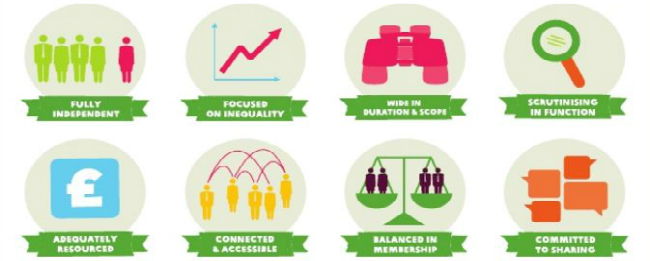By Francis Stuart, Oxfam Scotland Research and Policy Adviser
Our mission at Oxfam is to work with others to help end poverty, wherever we find it. But to do so – we must not – indeed we cannot – ignore extreme levels of economic inequality.
Within the last two decades, 660 million people around the world have risen out of poverty.
In the process, inequality between countries has fallen. The trouble is that inequality within countries is rising. The truth is: we can’t win the fight against the injustice of poverty, globally or here in Scotland, without reducing inequality. The two go hand-in-hand.
We’re kidding ourselves if we think a just society is possible when a handful of people control the vast majority of the world’s income and wealth.
Extreme economic inequality leaves people living in poverty and it creates and sustains power imbalances which help keep them there. Recently I heard powerful testimony from an inspiring woman who described the poverty she has battled as ‘being like glue – you’re stuck and it’s exhausting’. One ingredient of that glue is inequality.
Here in Scotland, income inequality is at its highest level in decades. Yet, at the same time, one in five people in Scotland live in poverty. If we’re going to bring that number down then we need to address Scotland’s inequality problem. Currently, the richest 10% of the Scottish population have more income than the bottom 40% put together. Wealth inequality is even starker: the wealthiest 1% own more than the bottom 50% combined.
Politicians from across the political spectrum know this isn’t right. Scotland’s party leaders have all expressed concern about current rates of inequality, while research shows the public have consistently stated deep unease about the economic divide.
While there are limits to Scotland’s devolved powers, Holyrood does have an increasing array of levers which it could use to help narrow the gap; from tax and social protection to the planning system and education.
It would be wrong to ignore recent momentum on this agenda in Scotland, but this has yet to produce sufficient policy change. Encouragingly, Scotland has a major opportunity to make progress by capitalising on the new Poverty and Inequality Commission, recently announced by the First Minister following two years of campaigning by Oxfam Scotland and our supporters. It’s a chance we must grab with both hands.
Recently some of the country’s leading experts on inequality issues gathered for a special forum organised by Oxfam Scotland and the University of the West of Scotland to examine the role the Commission could play.
There was consensus that we need a fresh approach, one which takes a longer term view. Governments come and go but inequality is long-lasting, and tackling it therefore requires long-term thinking. We need a Commission that helps us to break free from short-term political cycles and free from party politics. We need a Commission with the space and authority to come up with new ideas and to monitor Scotland’s progress in delivering them. That’s why the Commission must have a life beyond its initial two year tenure and be focused on narrowing the economic divide.
In April, Oxfam Scotland laid out our vision for the Commission and we’re encouraged to see the Scottish Government’s plans reflect many of our recommendations. Significantly, Ministers appear to acknowledge the importance of the Commission having the authority to hold this and future governments to account while providing concrete policy proposals to help reduce inequality.
To make sure that happens, the Commission’s Chair Douglas Hamilton must ensure the Commission has the scope and the authority it needs from the outset. It must be fully independent; retain a sharp focus on economic inequality; be wide in duration and scope; have the power to scrutinise the Government; and have sufficient resources.
Setting up the Commission in this way will give it the best chance to proactively explore the measures needed to build a more human economy – one in which people, not profit, are the bottom line and in which the needs of the most vulnerable are prioritised.
Imagine a Scotland where no one is left behind. We have the chance to work towards that future. We just need the political courage, on all sides, to take it.
This article first appeared in The Scotsman.
